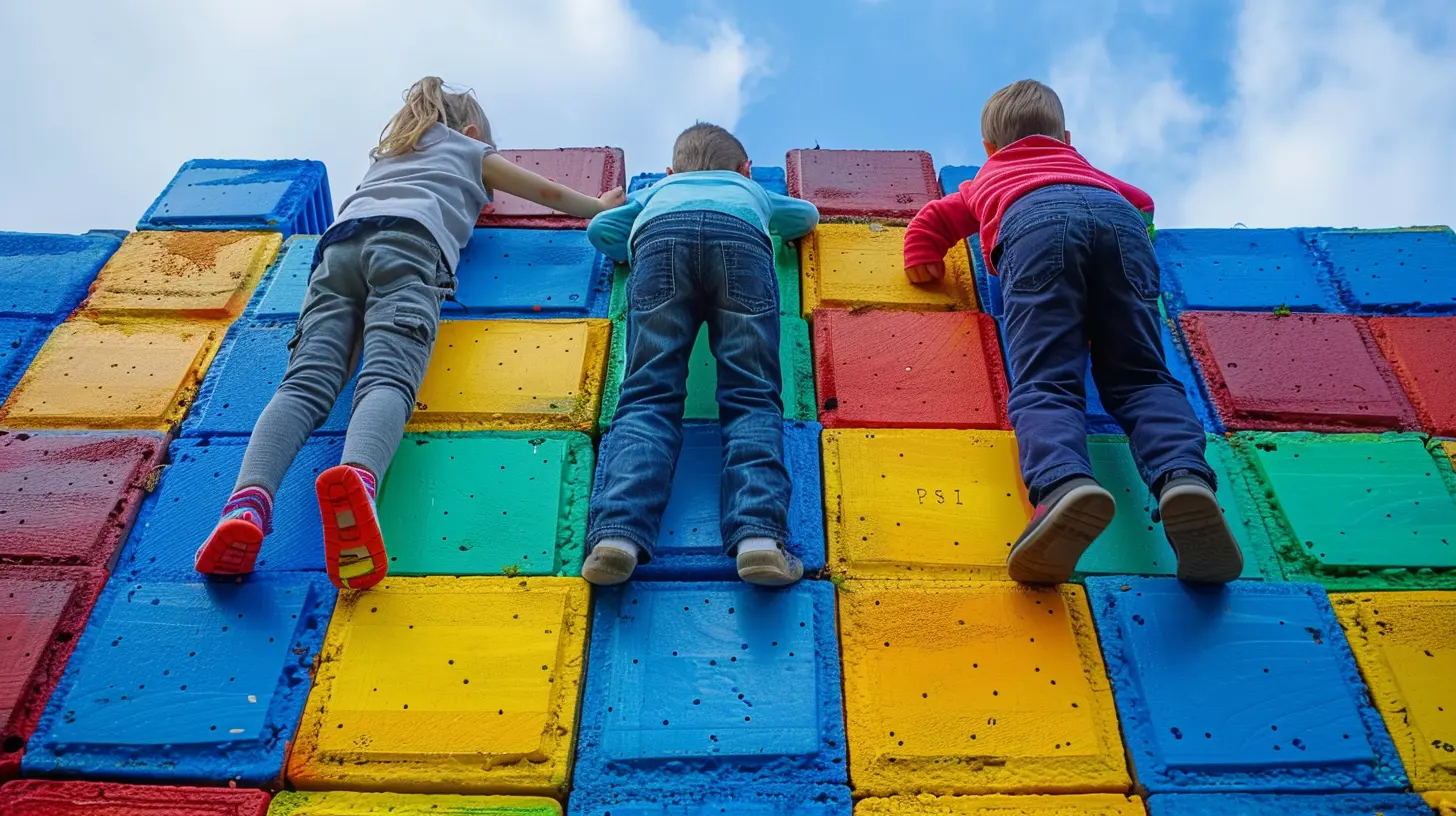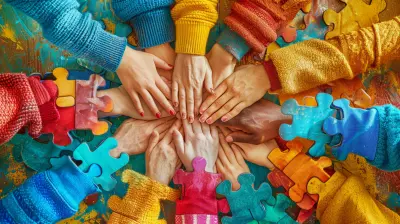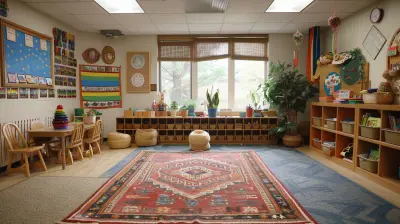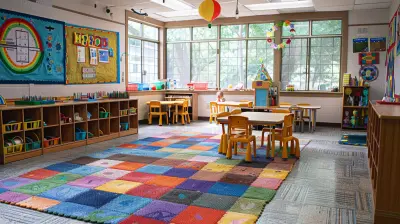2 August 2025
When we think about preparing children for success in life, our minds often jump to academics — reading, math, science, you name it. But there's a whole other set of skills that fly under the radar and are just as (if not more) crucial: executive function skills. These are the brain’s management system — the ability to plan, focus, remember instructions, and juggle multiple tasks. Basically, the behind-the-scenes skills that help us get stuff done.
Now, here comes the exciting part: Montessori education is like a personal trainer for these executive function muscles. Yep, without even realizing it, Montessori classrooms are quietly strengthening the mental muscles children need to thrive, not just in school, but in life.
So, let’s dive in and unpack how Montessori education works wonders in supporting and developing executive function skills in children.
What Are Executive Function Skills Anyway?
Before we zoom in on Montessori, let’s get clear on what executive function (EF) actually means. Imagine it as the CEO of the brain — a set of mental skills that help us manage time, pay attention, switch focus, plan ahead, follow instructions, and stay in control of our emotions.Some core components include:
- Working Memory: Holding and using information in the moment.
- Inhibitory Control: The ability to resist impulsive behavior.
- Cognitive Flexibility: Switching gears when plans change or new information comes in.
Now, for kids, especially young ones, these skills are still blossoming. They’re not born with fully developed executive function — it evolves over time. And that’s why the environment they grow up and learn in makes a massive difference.
Montessori Basics: What’s the Big Idea?
If you’re not super familiar with Montessori, here’s a super quick summary. Developed by Dr. Maria Montessori over a century ago, this educational approach is child-centered, hands-on, and rooted in the belief that kids learn best when they’re free to explore, choose, and work at their own pace.Pretty different from traditional classrooms, right?
Instead of rows of desks and a teacher barking orders, Montessori classrooms look more like little communities. Kids choose activities from a range of options, work independently or in small groups, and move at their own rhythm. Teachers (called guides) don’t lecture — they observe, coach, and step in only when needed.
Sounds peaceful? It is. But it's also incredibly powerful, especially when it comes to strengthening executive function.
How Montessori Education Boosts Executive Function Skills
Let’s break this down and look at exactly how Montessori education nurtures each major executive function skill. Spoiler alert: it happens naturally through everyday routines and activities.1. Freedom Within Limits = Self-Regulation Masterclass
One of the core tenets of Montessori is giving children freedom — but with boundaries. Kids can choose what they work on and when, but they’re expected to respect others, clean up after themselves, and follow certain classroom behaviors.This is HUGE for inhibitory control.
You know that moment when a child wants to shout or snatch something but stops themselves? That’s inhibitory control in action. In Montessori, children practice this over and over again. They wait their turn to use materials. They raise their hand instead of interrupting. They manage their emotions when something doesn’t go their way.
And they’re not being nagged into submission — they’re learning because the environment encourages it naturally.
2. Hands-On Learning Strengthens Working Memory
Montessori classrooms are packed with beautifully designed materials that aren’t just pretty — each one teaches a specific concept. And kids aren’t just staring at them. They’re touching, moving, building, sorting.This active, tactile approach heightens working memory.
Let’s say a child is working with the Golden Beads to learn about place value. They’re physically placing units, tens, hundreds, and thousands — seeing them, touching them, organizing them. That interaction helps them hold and process the concept much better than hearing a teacher explain it.
It’s like learning to ride a bike: you can hear the instructions a hundred times, but it only really clicks once you hop on and pedal.
3. Multi-Step Tasks Build Planning and Sequencing Skills
Montessori activities — or “work,” as it’s often called — often involve several steps from start to finish. Whether it’s pouring water, arranging number rods, or preparing a snack, kids have to plan, execute, and clean up.That’s planning and sequencing 101.
No one’s telling them: “Do this, now do that.” They figure it out themselves — with guidance if needed. And the repetition builds confidence and memory. Slowly but surely, they start thinking ahead, organizing their steps, and managing their time.
Honestly, it’s like project management for five-year-olds.
4. Mixed-Age Classrooms Encourage Peer Modeling and Flexibility
In Montessori, children of different ages (usually a three-year age span) work together in the same classroom. This setup creates a mini-society where kids learn from each other.Older kids model behavior for the younger ones. Younger kids watch and absorb.
This helps with cognitive flexibility — the ability to adapt, shift perspectives, and learn socially. When a child helps another child with a task, they’re not just teaching — they’re reinforcing their own skills, practicing patience, and thinking in new ways.
Ever watched a six-year-old explain math to a three-year-old? It’s beautiful chaos — and such powerful learning.
5. Minimal Distractions = Focus Training Ground
Montessori classrooms are designed to be calm, uncluttered, and focused. No loud posters, no chaos, no bells or timers every few minutes.This allows children to dive deep into their work and sustain attention over longer periods. In fact, one of the goals is helping children reach a state of concentration called “normalization” — where they’re completely absorbed in what they’re doing.
It’s like meditation meets learning. And yes, even toddlers can get there in a Montessori setting.
Real-Life Examples: Executive Function in Action
Let’s get real for a minute and look at what this actually looks like in everyday Montessori life:- Grace and Courtesy Lessons: These are little social roleplays where children practice saying “excuse me,” taking turns, or helping others. It builds emotional control and social awareness.
- Practical Life Activities: Washing dishes, sweeping, watering plants — these tasks seem simple, but they’re executive function gold. Kids plan, focus, complete steps, and regulate their behavior.
- Work Cycle: Montessori kids choose an activity, carry it to their workspace, do the task, and return it neatly. That whole cycle supports planning, focus, self-monitoring, and working memory.
It’s subtle, but it builds up like compound interest. Day after day, these experiences shape strong executive function skills that stick.
Why It Matters (Now and Later)
Strengthening executive function skills in early childhood pays off big-time. Research links strong EF skills with better academic performance, stronger relationships, fewer behavior problems, and higher life satisfaction.In fact, some studies suggest EF might be a better predictor of success than IQ. Mind blown, right?
Montessori doesn’t just teach kids what to learn — it teaches them how to learn, how to manage themselves, and how to make thoughtful choices. That’s not just preparing them for school — that’s preparing them for life.
Final Thoughts: Montessori = Brain Gym for EF Skills
So, what’s the bottom line?Montessori education gently, naturally, and effectively supports the development of executive function skills. With its child-led approach, hands-on materials, freedom within structure, and mixed-age environments, Montessori helps kids build the mental habits that lead to independence, confidence, and success.
It's not flashy or loud. It’s more like planting seeds and letting them grow. But those seeds? They bloom into capable, focused, resilient humans. And honestly, isn’t that what education is all about?









Vivian Tucker
Montessori: where kids master executive functions faster than I can find my keys—maybe I need a classroom too!
January 6, 2026 at 9:45 PM